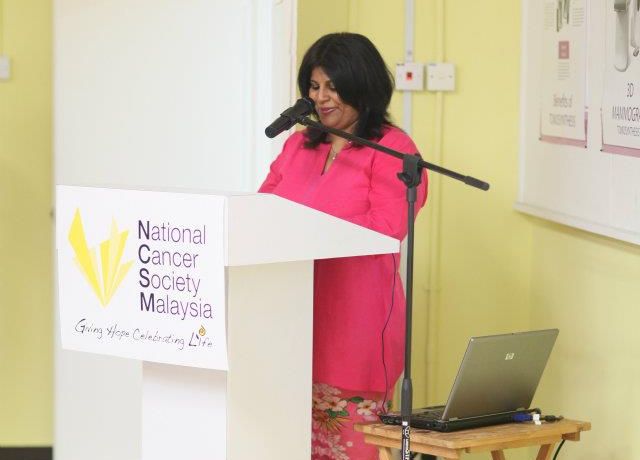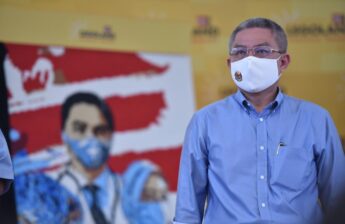KUALA LUMPUR, Oct 18 — Cancer diagnoses in Malaysia fell sharply after screenings and treatments were deferred during the Covid-19 pandemic, with advocates expecting more advanced cancer cases and deaths.
Many people had their scans postponed as public hospitals — deluged with coronavirus cases — converted their services to screen and treat Covid-19 patients, while private hospitals had standard procedures in place that limited the number of patients visits per day.
This meant long delays for patients suspected of cancer or needing confirmatory tests due to low-priority status, risk reduction strategies, and diverted resources, said the National Cancer Society Malaysia (NCSM).
“We can say from a preventive or screening perspective, we have seen our numbers decrease by over 80 per cent due to the Movement Control Order (MCO) and patient fears (of contracting the virus at hospitals). In terms of diagnosis and treatment, there will be cascading delays which will impact negatively on survivorship,” NCSM president Dr Saunthari Somasundaram told CodeBlue when contacted recently.
Dr Saunthari cited Mary (pseudonym) as an example. Mary, who was experiencing difficulty swallowing, was supposed to have a follow-up visit at the Universiti Malaya Medical Centre (UMMC) last year, but her appointment was deferred due to Covid-19.
She was told to seek treatment at a private hospital instead, but no referral was made even though the Ministry of Health (MOH) specified that referrals should be made and that the government would pay.
Mary did her radiological investigations privately and was shown to have oesophageal cancer. She went back to UMMC for treatment, but was refused a repeat prescription as she was not considered to be an “old” patient since the diagnosis was made privately and UMMC was not taking in new patients.
Fortunately, although she did not have the financial means to continue treatment privately, a benefactor assisted Mary, allowing her to complete treatment.
In another example, Kim (pseudonym), a woman in her early 50s who had a lump in her breast, did investigations at Kuala Lumpur Hospital and was diagnosed with breast cancer in December 2020. She was thought to be in early stage 1 or 2, but no treatment date was given.
In May 2021, a computed tomography (CT) scan was done and a report the following month showed that the cancer had metastasised to the lungs. Kim is currently on treatment.
“We will not see the impact on the incidence of cancer from the pandemic in real-time. Any incidence changes due to change in lifestyle (risk factor modifications) during the pandemic will only be reflected in the next decade. However, presently, there is no known direct impact on the incidence of cancer. Cancer keeps on ticking irrespective of the pandemic.
“There will, however, be changes in the diagnostic staging of cancer due to deferred investigations and treatment. In all probability, we will see a marked upgrading in the staging of cancer from 2020 to 2022 once we have real data. This will also reflect on the morbidity and mortality figures, with a negative impact on survivorship,” Dr Saunthari said.
CodeBlue was unable to reach top management at UMMC for further comments.
Disrupted Cancer, NCD Services In Hospitals
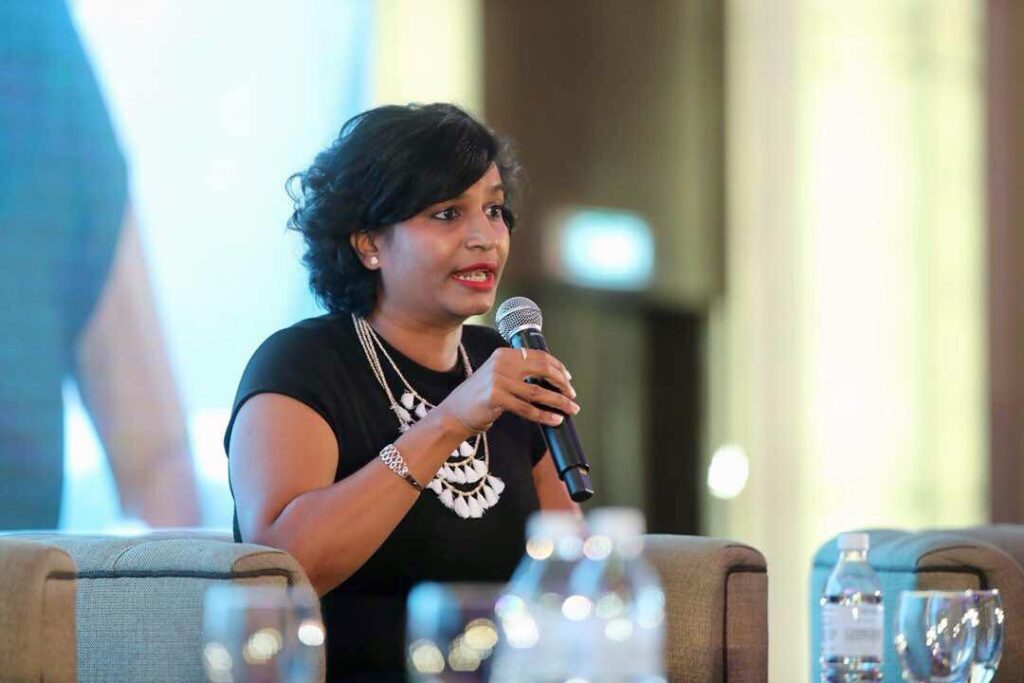
UMMC public health medicine specialist Dr Nirmala Bhoo-Pathy spoke to CodeBlue and said that Malaysia was one of many low- and middle-income countries (LMICs) that saw declines in cancer surgeries and radiology services during the early phase of the pandemic. Home-based palliative care, on the other hand, was almost non-existent during the period.
Dr Nirmala said the delivery of non-communicable disease (NCD) care, such as cancer, were negatively affected as health systems were forced to adopt “priority-setting” exercises.
“Unfortunately, there is no published data from our MOH. However, there was a cross-sectional survey conducted by the International Agency for Research on Cancer (IARC) Covid-19 impact study group last year. Malaysia was one of the 17 LMICs that participated.
“It showed that colorectal screening services in Malaysia were halted for at least one month, but diagnostic services for screen-positive individuals and treatment services for cancer patients were reported to remain largely unaffected,” she said.
Dr Nirmala pointed out that UKM Medical Centre, now known as Hospital Canselor Tuanku Muhriz UKM (HCTM), also reported a reduction in the uptake of oncofertility services during the early phase of the pandemic due to both doctor-related and patient-related factors.
HCTM was swiftly converted into a hybrid Covid-19 hospital at the onset of the pandemic where it treated both Covid-19 and standard cases. These adjustments, however, significantly affected HCTM’s overall health services, including oncofertility, as some fertility treatment cases had to be deferred, while mandatory Covid-19 screenings for couples added to in vitro fertilisation (IVF) cost and cancer treatment, among others.
Restricted visits to clinics and fear of contracting the virus at hospitals also led to a general decline in the hospital’s oncofertility services uptake.
Non-Covid Backlog Quandary
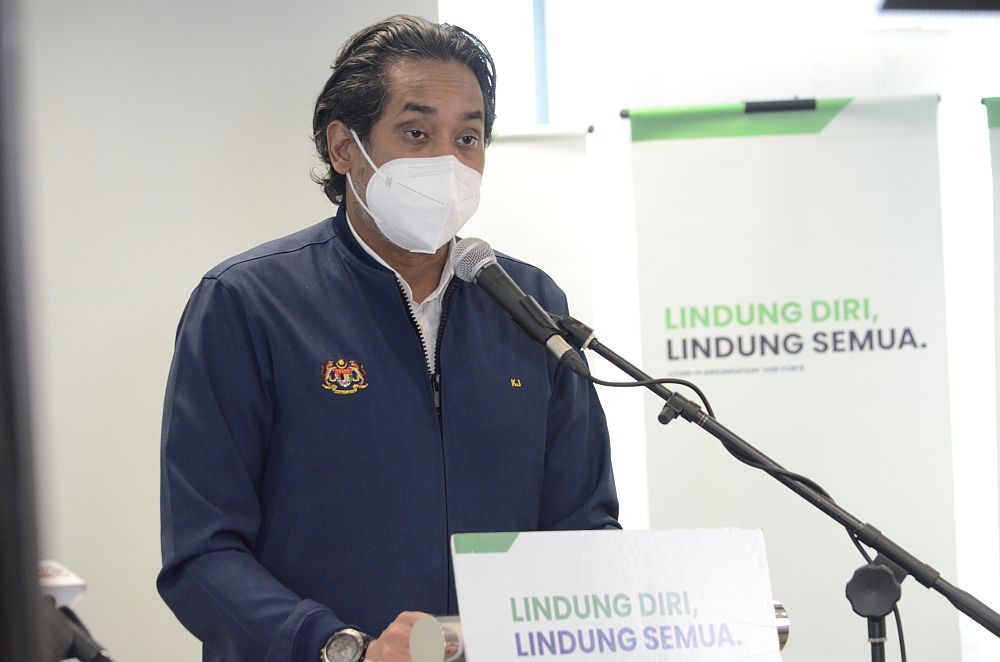
Cancer rates are increasing globally each year, with a report by the World Health Organization (WHO) estimating overall cancer cases to rise by 60 per cent in 2040.
In 2020, Malaysia reported 48,639 new cancer cases, according to the Global Cancer Observatory, which is equivalent to about 42 per cent of 115,238 cases diagnosed between 2012 and 2016. This is expected to rise to more than 66,000 new cancer cases annually by 2030.
The Malaysia National Voluntary Review 2021 report further noted that nearly a quarter of a million cancer cases and 150,000 deaths have been reported over the past decade.
A global study by CovidSurg Collaborative that was published in the British Journal of Surgery in May last year projected a backlog of 151,717 surgeries in Malaysian hospitals during a 12-week period of hospital services’ disruption due to the Covid-19 epidemic.
The study revealed that 70.9 per cent of overall surgeries, including benign diseases, cancer surgery and obstetrics, were cancelled during the early stages of Malaysia’s Covid-19 outbreak and MCO conditions last year.
Malaysia’s coronavirus epidemic worsened significantly this year compared to 2020, as public hospitals in the Klang Valley were overrun with Covid-19 patients in July and August.
Health Minister Khairy Jamaluddin last month said there are over 57,000 backlogged non-Covid procedures, comprising surgical-based and medical-based cases, as of September 1.
Out of 53,785 surgical-based cases, 2.6 per cent or 1,412 involved cancer cases, while out of 3,570 medical-based procedures, 15 per cent or 534 were cancer cases.
Khairy said although outsourcing efforts have been initiated since 2020, the number of backlog cases are still high due to limitations such as lack of expertise in private health care facilities and lack of private hospitals in some states.
Not Just In Malaysia
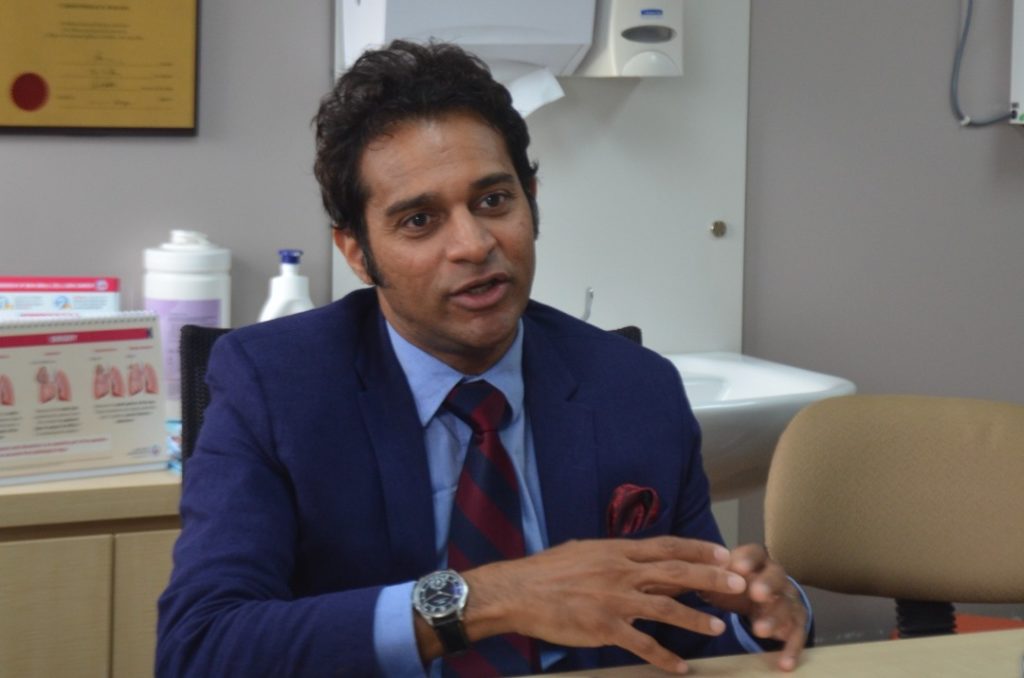
Dr Anand Sachithanandan, who is a consultant cardiothoracic surgeon as well as co-founder and president of Lung Cancer Network Malaysia, said many cancer services were disrupted over the past 18 months when the public was told to “stay at home” to mitigate the pandemic.
He said the uptake of low dose CT screening for high-risk individuals was low as the public was reluctant to come to the hospital for check-ups.
“Close surveillance with CT or PET scans is vital for any cancer, especially lung cancer, to monitor for disease recurrence after surgery and response to therapy. Delays in treatments like chemoradiotherapy or immunotherapy would also allow the cancer to progress,” Dr Anand told CodeBlue when contacted.
“Unfortunately, I anticipate we will see a significant rise in more cases of advanced-stage lung cancer over the next year or so due to delayed presentation and diagnosis, as a consequence of fears and delays due to the pandemic. This will be similar to what is likely to occur elsewhere such as in the United Kingdom, India, and the United States,” Dr Anand added.
He said a retrospective study from Spain showed that Covid-19 had a significant impact on the diagnosis and prognosis of patients with non-small cell lung cancer (NSCLC), with 38 per cent fewer new lung cancer cases being diagnosed during the pandemic. They also found that patients were more symptomatic due to more advanced stage disease.
“We can extrapolate from this data and expect a similar scenario here because like Malaysia, Spain had a state of emergency to contain the pandemic with severe disruption of routine non-Covid services,” Dr Anand said.
Spain reported a median overall survival of 6.7 months during Covid-19 versus 7.9 months pre-pandemic at a median follow-up of 10.4 months, however, longer-term data is lacking.
Their 30-day death rate in patients with newly diagnosed NSCLC also increased significantly with the pandemic from 25 per cent before Covid-19 to 49 per cent during Covid-19. “This is quite alarming,” Dr Anand said.
Lung cancer is the second most common male cancer in Malaysia and is the fourth most common tumour in women.
Dr Anand said there must be a coordinated and sustained collaboration between public and private hospitals similar to initiatives to decant non-Covid patients from government hospitals.
“Several private hospitals with comprehensive state-of-the-art lung cancer services should be identified and such patients prioritised on clinical grounds. The issues of remuneration and reimbursement, medical indemnity and so forth can be sorted with appropriate political will and meaningful engagement of all the relevant stakeholders,” he said.
The Way Forward
Dr Anand suggested that some resources from tobacco taxation be allocated and ring-fenced to support screening of high-risk individuals, such as chronic heavy smokers and those with a family history of lung cancer.
Additionally, some funds can be utilised to develop and maintain public-private partnerships to reduce the anticipated rise in waiting lists or times at government facilities for specialist care of suspected or confirmed cases of lung cancer.
The UK government earlier this month announced that it would raise £12 billion (RM68.8 billion) per year for health and social care on average over the next three years to tackle the health backlog caused by the Covid-19 pandemic.
This will be funded through a 1.25 per cent Health and Social Care Levy from April 2022 that will be ring-fenced for health and social care.
Dr Anand said funds can also be set aside for the provision of highly efficacious but costly “newer” medicines, such as targeted therapy and immunotherapy. “Financial toxicity is a real concern even for the insured as some of the innovative drugs are prohibitively expensive,” he said.
UMMC’s Dr Nirmala suggested offering innovative cancer screening solutions, such as stool-based testing, as efforts to identify cancers early should still be the emphasis.
“We also need to pay attention to evidence on screening for breast cancer that recently came from India where clinical breast examination was shown to be effective in saving lives in women aged more than 50 years.
“Likewise, stool-based testing may be an attractive option to not only pick up colorectal cancers early in individuals aged over 50 but may also aid in identifying pre-cancerous lesions which can be removed, hence reducing the risk of colorectal cancer,” she said.
NCSM’s Dr Saunthari said it is crucial to rebuilding confidence in the health care system as patients remain fearful of coming to hospitals. She added that while backlogs need to be cleared in a timely manner, those seeking diagnosis or are newly diagnosed should not be turned away.
For Society for Cancer Advocacy and Awareness (SCAN) Kuching, a civil society for cancer patients, survivors, caregivers and concerned professionals, its secretary Chris Cheng said the group hopes that the government will not forget that cancer is still a killer and that the needs of cancer patients should still be a priority for the leaders of the country.


